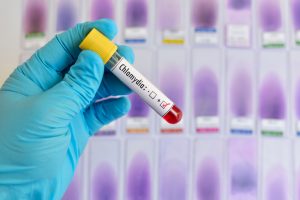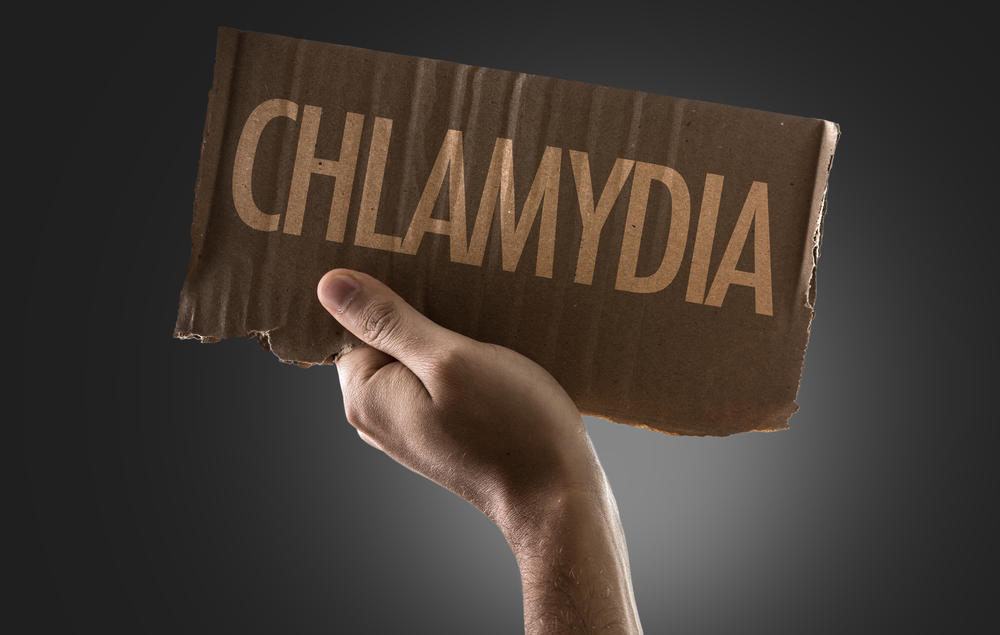A sexually treated infection doesn’t just put a damper on your sex life, it can cause more serious health issues too. Among the numerous types of STDs, chlamydia is the most prevalent in the United States.
Although more common among sexually active young women, chlamydia infection can also affect men. In fact, in 2017, more than half a million American men were reported infected, according to the Centers for Disease Control and Prevention. Read on to learn more about chlamydia infection in men.
Symptoms of Chlamydia in Men
Transmitted through sexual contact, Chlamydia trachomatis is a bacterial infection that sometimes does not cause noticeable symptoms. Thus, many are often unaware that they are infected, causing them to overlook some of the milder symptoms.
This common sexually transmitted infection can affect any sexually active individual of any age. In men, the infection can cause several symptoms which usually appear a week or two after exposure.
Painful urination is one of the most common symptoms of the disease, and it may be accompanied by lower abdominal pain. In more severe cases, especially if the infection has been left untreated for long or has been recurring, chlamydia may also cause testicular pain and penile discharge.
There are also instances wherein the infection spreads to the rectum. When this happens, some of the symptoms include rectal pain, as well as rectal bleeding or discharge. In rare instances, you may acquire a chlamydial eye infection if your eye happened to get in contact with infected secretions.
Complications

In men, chlamydial infection can result in complications such as urethritis or epididymitis. When you have chlamydial urethritis, it means the bacteria already traveled to your urethra and caused your urethra to become swollen and inflamed.
As you can imagine, since your urethra is where your urine and semen pass through to exit your body, it will be painful when you urinate or ejaculate if you have chlamydial urethritis. Even when you’re not urinating, you may feel a stinging or burning sensation in your urethra.
On top of that, because your urethra is inflamed, you’ll also see a yellowish discharge from your penis. The tip of your penis may also become irritated, thus further causing discomfort and pain. The head of your penis may also become red and itchy.
Epididymitis, on the one hand, may occur when Chlamydia trachomatis spreads to your epididymis. This is the tube found behind your testicles and it’s mainly responsible for storing and transporting your sperm.
If your epididymis becomes infected, you will most likely experience testicular pain, and the pain may also spread to your groin. Epididymitis caused by a chlamydial infection may also be accompanied by fever and scrotal swelling.
If the bacterial infection spreads to your prostate gland, then you may develop prostate gland infection or prostatitis. This can cause other symptoms such as fever and chills, as well as lower back pain. Just like with chlamydial urethritis, you may also experience painful urination, and you may suffer from pain during or right after sex.
Long-Term Health Consequences of Chlamydia
Although it’s easy to overlook a chlamydial infection, you should get yourself checked right away as soon as you notice any symptom. If you don’t, the infection could worsen and result in complications.
If you treat a chlamydial infection during its early stages, then you may be able to avoid two very problematic long-term consequences of chlamydia – erectile dysfunction and infertility.
When you develop urethritis or prostatitis due to chlamydia infection, you could end up becoming both impotent and infertile. With urethritis, the inflammation in your urethra can cause scar tissue to form.
Your urethra is actually a very thin tube, just around 8 millimeters in diameter. When scar tissue forms along its length, it can block the passage of your urine, as well as your semen.
If the scar tissue grows big enough, it can restrict the volume of semen passing through during ejaculation, thus resulting in impaired fertility. Erectile dysfunction may happen if the scar tissue forms in the anterior part of your urethra which runs along the length of your penis.
Your urethra is actually surrounded by your corpus spongiosum, which is a mass of spongy erectile tissue that prevents your urethra from becoming compressed when you get an erection. When the scarring caused by chlamydial urethritis affects your corpus spongiosum, you’ll start experiencing problems with your erection.
Scar formation inside the urethra can result in a condition called urethral stricture which simply means your urethra has become narrow due to scar tissue growth in your urethral mucosa, corpus spongiosum, and the surrounding spongy tissues of your corpora cavernosa.
Urethral stricture is also closely tied to erectile dysfunction, especially when the corpora cavernosa is affected. The corpora cavernosa are the two chambers of erectile tissue that run along the length of your penis. These are the tissues that get engorged with blood during an erection.
Just like urethritis, prostatitis can also result in erectile dysfunction. That’s because an inflamed prostate gland can restrict the flow of blood to your penis. In fact, men who suffer from chronic prostatitis have a significantly higher risk of becoming impotent.
As you well know, your erection is greatly dependent on the volume of blood flowing to your erectile tissues. A low volume of penile blood flow can result in a very soft erection, or you may not get a hard-on at all.
Treatment Options

Since a chlamydial infection is basically caused by bacteria, antibiotics can easily help you get rid of the infection. Doctors typically prescribe antibiotics like doxycycline or azithromycin to treat a chlamydial infection.
If you catch the infection at its early stages, it can be treated easily. All you need to do is make sure that you complete the antibiotic treatment, which usually lasts for seven days. Alternatively, your doctor may give you a single large dose of antibiotic.
As with most sexually transmitted infections, prevention is even more crucial than treatment. The importance of using barrier protection during sex, whether it’s vaginal, anal, or oral, cannot be stressed enough.







